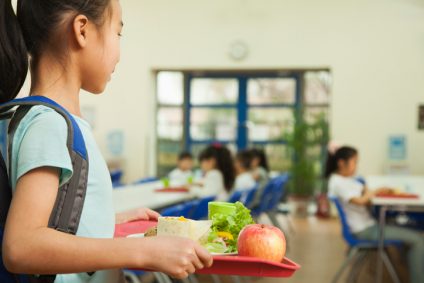
CREDIT: This story was first seen in the Guardian
Cross-party group of MPs and peers cites evidence of children existing on diets of crisps when school canteens are shut.
The Guardian reports that up to three million children risk going hungry during the school holidays, leaving them vulnerable to malnutrition and undermining their education and life chances, a cross-party group of MPs and peers has warned.
Its report cited evidence of children existing on holiday diets of crisps, hungry youngsters unable to take part in a football tournament because ‘their bodies simply gave up’, and others surviving on stodgy, unhealthy diets ‘bought to fill hungry stomachs’.
The report said those at risk of hunger over the summer include more than one million children who receive free school meals during term time, and two million more with working parents who are still in poverty.
“The evidence presented in this report is staggering. It shows us that not only are there children in this country who are exposed to hunger when they are not at school, but also that this exposure risks damaging their prospects of gaining a good education and living a healthy life,” the group’s chair, Frank Field MP, said.
The group also said that ministers should channel £41.5m raised as part of the planned tax on sugary drinks to help each UK council set up support schemes with local churches and charities aimed at feeding hungry children when school canteens are shut.
The all-party parliamentary group (APPG) on hunger found there was a “deeply troubling” impact on children who had gone hungry over the holidays and returned to class “malnourished, sluggish and dreary”.
It said the evidence it had received indicated that those children “start the new term several weeks, if not months, intellectually behind their more fortunate peers who have enjoyed a more wholesome diet and lots of activity”.
The report said: “There can be no escape from the reality that in 2017, children in different parts of England, Wales, Scotland, and Northern Ireland are arriving back at school hungry and totally unprepared to learn after the holidays.
“We have learnt of one young person who vomited during the holidays because their diet consisted exclusively of packets of crisps. Elsewhere, a group of children taking part in a holiday football tournament had to drop out of the latter stages of the competition, as they had not eaten a meal in the days leading up to the event. Their bodies simply gave up on them.”
The positive impact on poorer children who attended free meal and fun projects during the holidays was stark, the report said. They ‘eat more healthily, undertake more exercise, demonstrate better behaviour, and return to school in a much improved condition than they otherwise would have done in the absence of those projects’.
Although the APPG praised voluntary groups which had set up networks of holiday food projects across the UK, it said that overall provision was sporadic and piecemeal, and could not be viewed as a sufficient response to the problem.
Some areas had no coverage at all, and large numbers of children were missing out, it said: “A scarcity of funding, a lack of coordination and a heavy reliance on donations limit our country’s ability to protect every child from hunger during school holidays.”
It called on the government to back a proposed free school meals (provision in school holidays) bill after the general election. “It [the government] has now had time to take on board the fact that under its stewardship of the fifth richest country in the world, too many children are stalked by hunger,” said Field.
He added: “Abolishing hunger during school holidays is beyond the ability of individual community groups and volunteers alone. It needs, above all, a government lead in giving local authorities duties to convene churches, community groups, businesses, schools and public bodies in their area.”
Don’t forget to follow us on Twitter, like us on Facebook, or connect with us on LinkedIn!

Be the first to comment